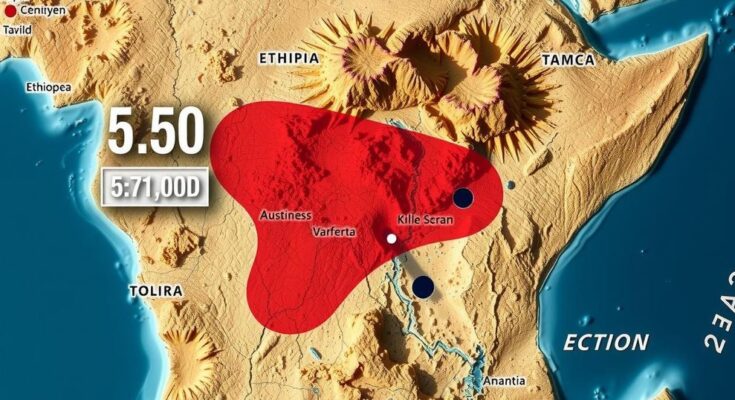A magnitude 5.5 earthquake struck east of Addis Ababa, Ethiopia, early Saturday, at a shallow depth of 10 km (6.2 miles) according to the GFZ. This event comes amid a pattern of minor quakes connected to a nearby volcano indicating potential eruption.
On Saturday morning, a magnitude 5.5 earthquake occurred in Ethiopia, specifically east of the capital city, Addis Ababa. The German Research Centre for Geosciences (GFZ) reported that the quake struck at a shallow depth of 10 kilometers (6.2 miles). This seismic activity follows a series of minor earthquakes in the region, which has experienced heightened geological turbulence since early January due to signs of an impending volcanic eruption nearby.
Ethiopia’s geological landscape is marked by tectonic activity, making it prone to earthquakes. The recent seismic event is indicative of a broader situation in the region, where increased volcanic activity has been reported. Such geological phenomena often lead to a chain reaction of minor seismic events, contributing to the heightened risk of more significant earthquakes. Understanding this volcanic and tectonic interplay is crucial for anticipating future seismic activity and ensuring public safety.
In conclusion, the magnitude 5.5 earthquake that struck Ethiopia’s eastern region highlights both the immediate impact of tectonic movements and the underlying volcanic activities that may intensify such occurrences. As this region continues to experience multiple minor quakes, vigilance and preparedness become paramount in response to the geological risks presented. Authorities must monitor these developments closely to protect the local population.
Original Source: www.jpost.com




